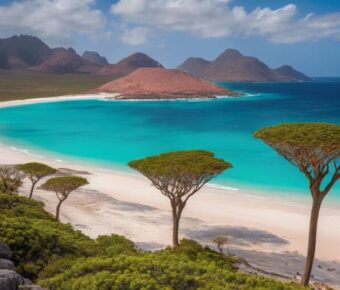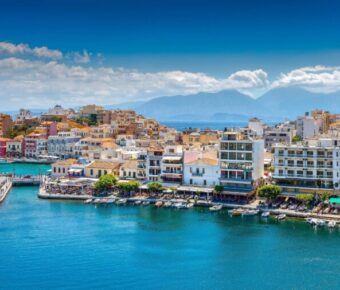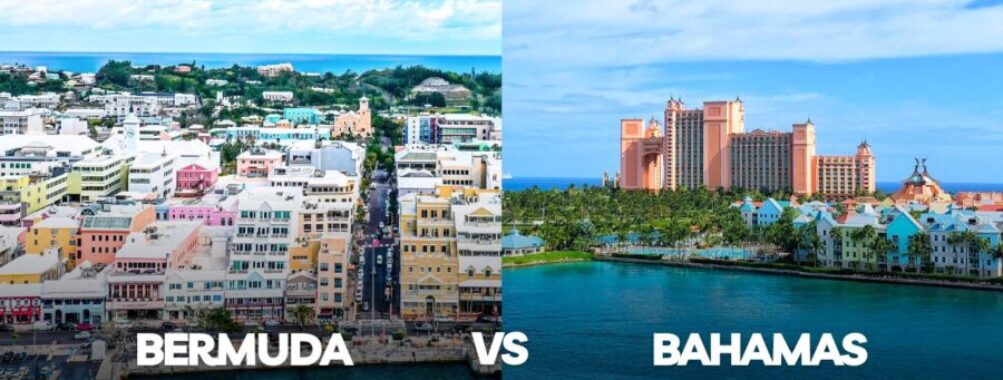
Bermuda vs Bahamas: 7 Key Differences to Know Before Booking Your 2025 Island Getaway
Looking to plan your next island getaway? Deciding between Bermuda and the Bahamas can be tricky, as both offer stunning beaches and crystal-clear waters. Although these two destinations may seem similar initially, they offer different vacation experiences.
Bermuda is generally considered more picturesque than the Bahamas, though it has a higher price tag. Due to its proximity to the equator, the Bahamas enjoys more consistent warm weather throughout the year, while Bermuda has more seasonal temperature changes. This makes timing your visit to Bermuda more vital if you’re looking for those perfect beach days.
The vibe differs significantly between these island destinations. Bermuda feels more relaxed and laid-back, perfect for travelers seeking a peaceful retreat.
The Bahamas offers more variety with islands catering to different types of travelers – from luxury seekers to adventure enthusiasts. Both locations feature excellent diving opportunities, Bermuda being more beginner-friendly while the Bahamas offers sites for all skill levels.
Table of Contents
- Overview of Bermuda
- Geographical Formation of Bermuda
- Culture and History
- Key Attractions and Activities
- Exploring the Bahamas
- Island Group of the Bahamas
- Historical Significance
- Top Destinations in the Bahamas
- Convenience and Amenities
- Travel Comparison
- Weather Patterns
- Accommodation Options
- Culinary Experiences
- Outdoor Excursions
- Local Events and Festivals
- Travelling to Bermuda and The Bahamas
- Flights and Accessibility
- Local Transportation
- Entry Requirements
- Caribbean Context
- Comparison with Other Caribbean Destinations
- Economic Impact of Tourism
- Sports and Recreation
- Bermuda and the Bahamas in Sports
- Marine Activities
- Golfing Destinations
- Planning Your Trip
- Best Time to Visit
- Budgeting for Your Vacation
- Travel Insurance and Safety
- Creating an Itinerary
- Frequently Asked Questions
- What are the primary differences in climate between Bermuda and the Bahamas throughout the year?
- How do Bermuda’s cultural and historical attractions compare with those in the Bahamas?
- What are the considerations for choosing between a cruise to Bermuda and the Bahamas?
- Which destination is recommended for travelers seeking a more affordable tropical vacation?
- Can visitors expect a significant difference in safety when deciding whether to travel to Bermuda or the Bahamas?
- Which island provides a wider variety of sporting events and activities, Bermuda or the Bahamas?
- Book Your Dream Experience
- More Travel Guides
Overview of Bermuda
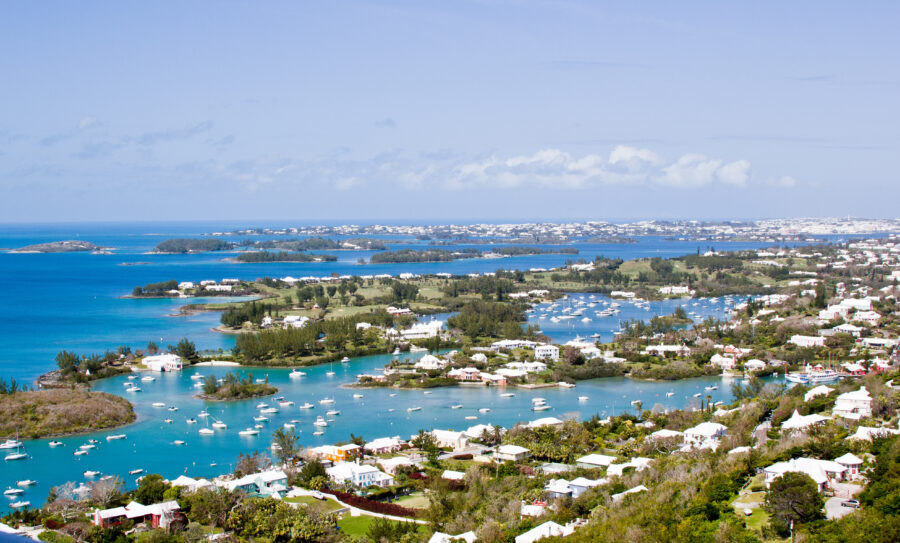
Bermuda offers a unique blend of British charm and island beauty, with its pink-sand beaches and rich maritime heritage. This tiny archipelago in the Atlantic Ocean has become a beloved destination for travelers seeking relaxation and adventure.
Geographical Formation of Bermuda
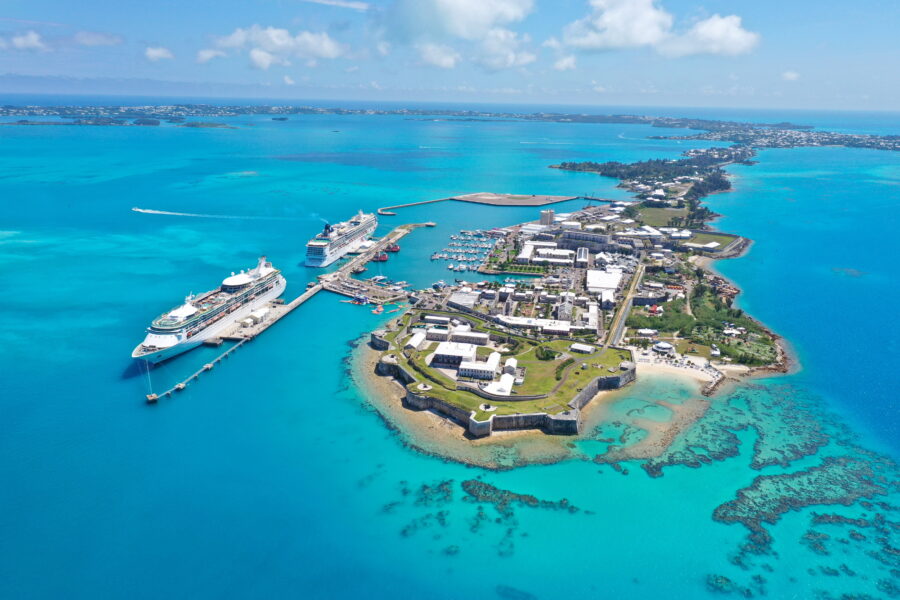
Bermuda isn’t actually in the Caribbean, as many people think. It sits alone in the Atlantic Ocean, about 650 miles east of North Carolina.
The archipelago consists of 181 islands and islets, though only about 20 are inhabited. These islands formed on a volcanic seamount and are surrounded by coral reefs that protect the shoreline.
Bermuda’s famous pink beaches get their distinctive color from crushed red shells of foraminifera, tiny marine organisms that mix with the white sand. The total land area is just 21 square miles, making it one of the smallest territories in the world.
Despite its small size, Bermuda’s geography creates diverse landscapes. The interior features lush hills and valleys, while coastal areas showcase dramatic rock formations, caves, and those stunning beaches that draw visitors year-round.
Culture and History
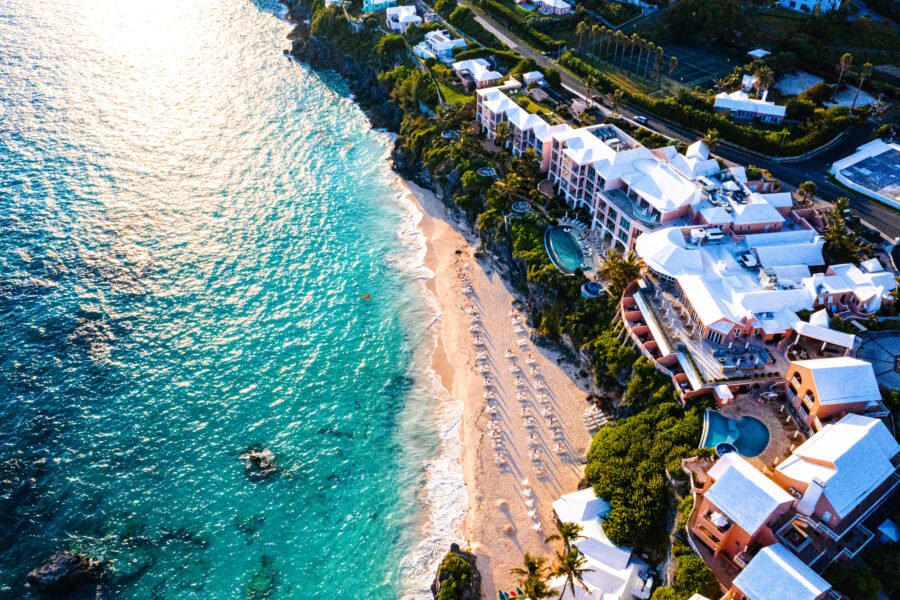
Bermuda’s culture reflects its British colonial past and multicultural influences. First settled in 1609 after a shipwreck of British colonists headed to Virginia, Bermuda became Britain’s oldest self-governing overseas territory.
The island’s heritage is visible in its architecture, with pastel-colored houses featuring white stepped roofs designed to collect rainwater. English is the primary language, though you’ll notice the distinct Bermudian accent that reflects the island’s unique history.
Bermudians take pride in their traditions, from the Gombey dancers (a folk tradition combining British, West African, and indigenous elements) to cricket matches. The island maintains a somewhat formal atmosphere compared to Caribbean destinations. You’ll notice many locals dressed in Bermuda shorts (yes, they originated here!) with knee-high socks, blazers, and ties in business settings.
Key Attractions and Activities
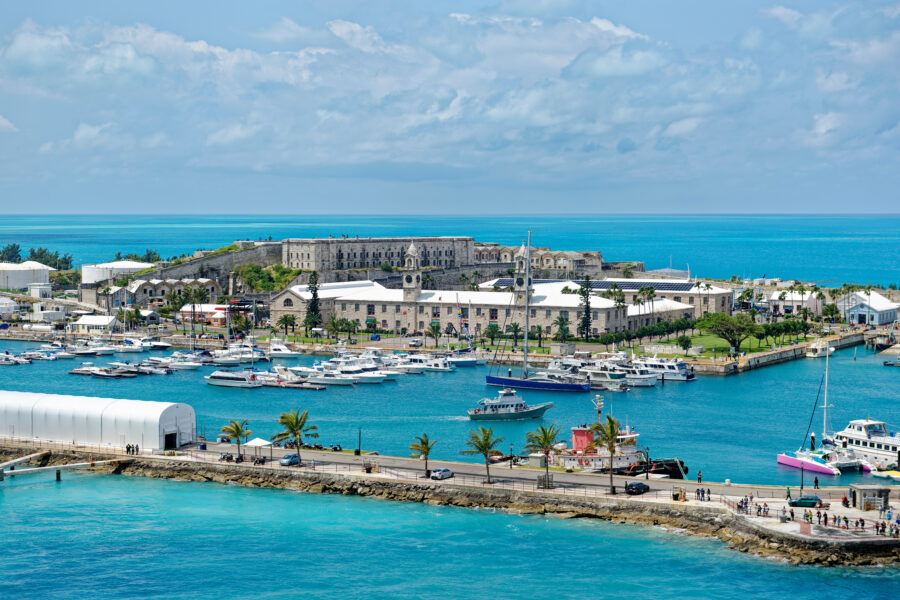
Bermuda’s beaches are world-class, with Horseshoe Bay’s pink sands consistently ranked among the best beaches globally. Water activities abound – snorkeling the coral reefs reveals colorful fish, while divers can explore over 300 shipwrecks surrounding the island.
The Royal Naval Dockyard, a former British military base, now houses shops, restaurants, and the National Museum of Bermuda. In Hamilton, the capital, you’ll find colonial buildings, boutiques, and the Cathedral of the Most Holy Trinity with impressive island views from its tower.
For nature lovers, hiking the Railway Trail (a former train route) offers glimpses of hidden beaches and lush landscapes. The Crystal Caves showcase stunning underground formations with crystal-clear pools.
Golf enthusiasts love Bermuda for its challenging courses and ocean views. After a day of activities, the island’s restaurants serve fresh seafood with British and Caribbean influences, including the local fish chowder spiced with black rum and sherry peppers.
Exploring the Bahamas
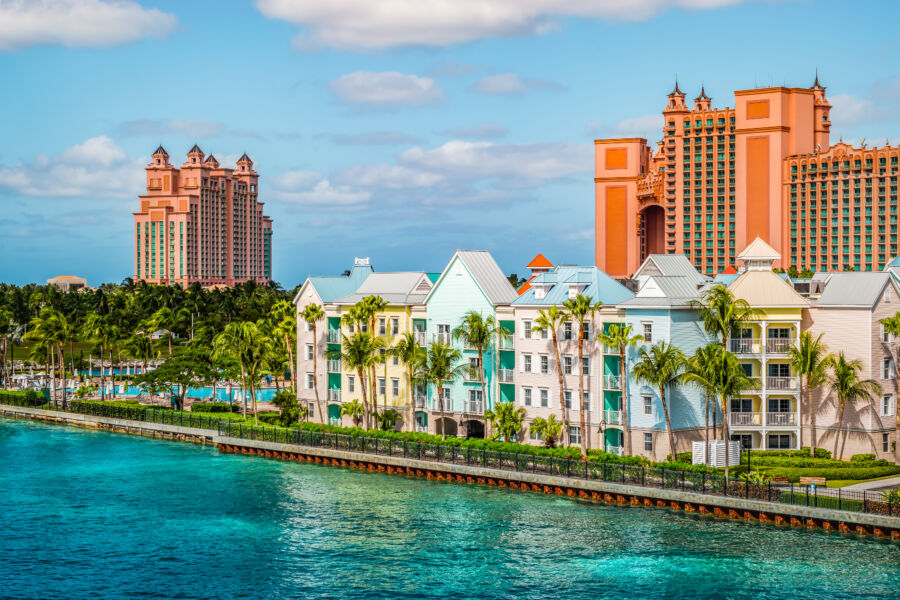
The Bahamas offers visitors a tropical paradise with crystal-clear waters, stunning beaches, and a rich cultural heritage. This island nation presents diverse experiences across its many inhabited islands, each with unique character and attractions.
Island Group of the Bahamas
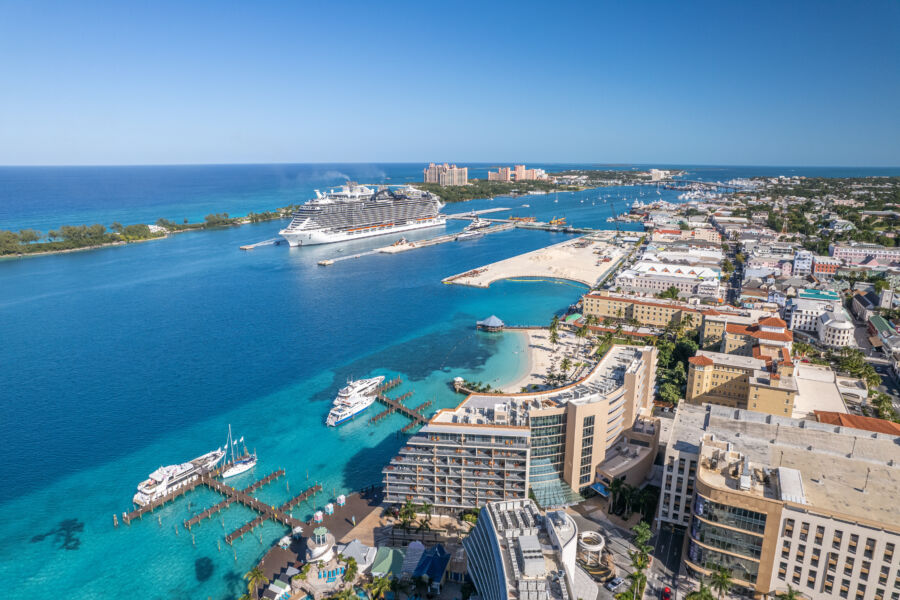
The Bahamas consists of over 700 islands and cays, though only about 30 are inhabited. These islands stretch 100,000 square miles of the Atlantic Ocean, making it a vast archipelago with plenty to explore.
The islands are typically grouped into several regions. New Providence, home to Nassau (the capital city), is the most developed and visited island. The Out Islands, including Eleuthera, Exuma, and Abaco, offer more secluded experiences.
Each island has its personality. Eleuthera is known for its pink sand beaches and pineapple farms. The Exumas feature swimming pigs and stunning blue waters. Andros, the largest yet least developed island, houses the world’s third-largest barrier reef.
Most visitors arrive at Nassau first, but island-hopping is popular for those wanting to experience the diversity of the Bahamas.
Historical Significance
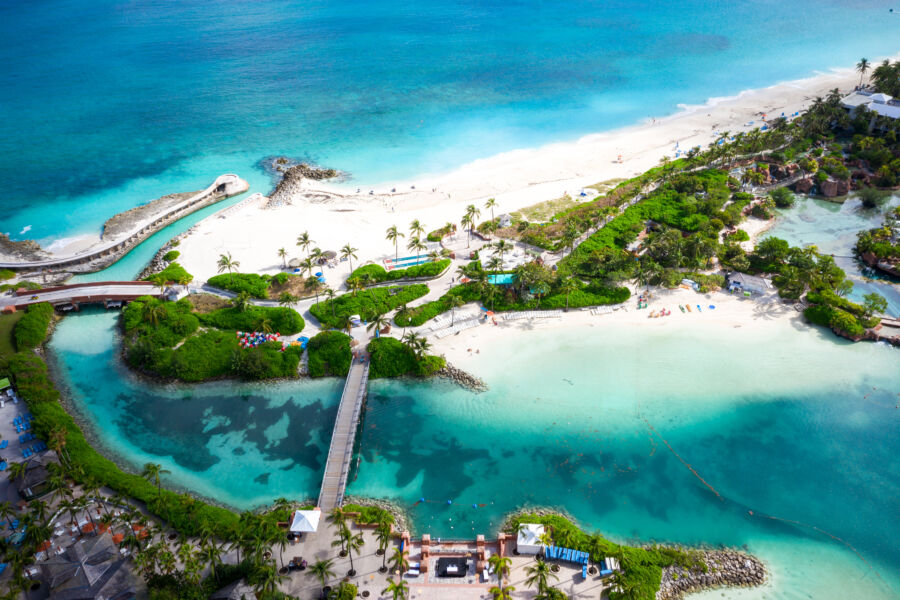
The Bahamas carries a fascinating history shaped by various influences. The indigenous Lucayan people inhabited these islands before Christopher Columbus landed in the New World in 1492.
The islands later became a haven for pirates during the “Golden Age of Piracy” in the early 18th century. Famous pirates like Blackbeard and Calico Jack used the Bahamas as their base. Nassau was essentially a pirate republic for a time!
British colonial rule followed, bringing plantations and slavery. After emancipation in 1834, formerly enslaved people established communities throughout the islands. The Bahamas gained independence from Britain in 1973.
Today, this history is preserved in sites like Fort Charlotte and the Pirates of Nassau Museum. The colorful Junkanoo festival, with roots in African traditions during slavery, continues as an important cultural celebration with vibrant costumes and music.
Top Destinations in the Bahamas
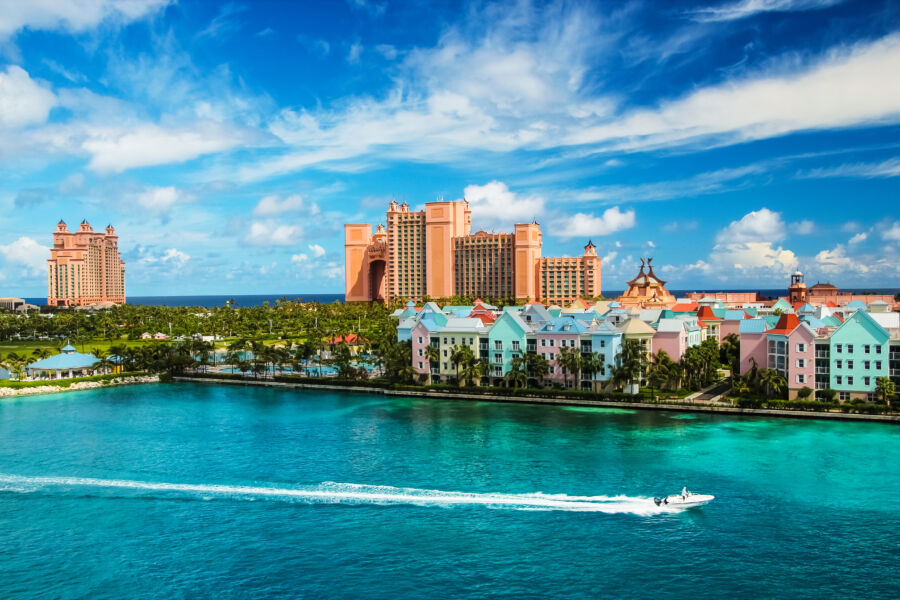
Nassau on New Providence Island is the cultural hub with attractions like the straw market, Paradise Island, and the famous Atlantis resort. The city blends colonial architecture with modern amenities.
Paradise Island, connected to Nassau by two bridges, houses luxury resorts, gorgeous beaches, and the massive Atlantis water park. Cable Beach offers pristine white sand and clear waters just west of Nassau.
For nature lovers, Eleuthera’s Glass Window Bridge provides stunning views where the dark Atlantic meets the turquoise Caribbean. The Exumas offer swimming opportunities with pigs at Big Major Cay and sharks at Compass Cay.
Harbour Island’s pink sand beaches are world-famous, while Grand Bahama’s Lucayan National Park features one of the world’s longest underwater cave systems. The swimming pigs of the Exumas have become an iconic Bahamian attraction.
Convenience and Amenities
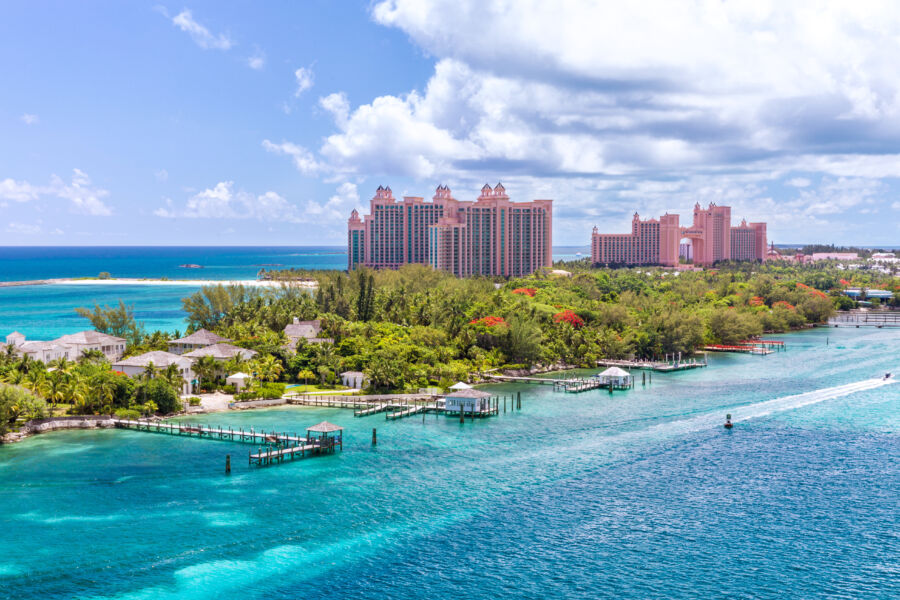
The Bahamas offers varying levels of luxury and convenience depending on the island. Nassau provides the most developed tourist infrastructure with numerous hotels, restaurants, and transportation options.
Major resorts like Atlantis and Baha Mar offer all-inclusive experiences with pools, beaches, casinos, and multiple dining options. Try conch fritters, cracked conch, and rock lobster at local restaurants like Arawak Cay’s Fish Fry for authentic Bahamian cuisine.
Transportation between islands includes regular ferry services and domestic flights. Taxis and rental cars are readily available on the major islands, while bicycles and golf carts are popular on smaller ones.
The Bahamas uses the Bahamian dollar, which is pegged to the US dollar. American currency is widely accepted throughout the islands. Most tourist areas have reliable internet access and cell service, which may be limited on more remote islands.
English is the official language, making communication easy for many visitors. The locals, known for their warm hospitality, often refer to their country as “the islands of the Bahamas.”
Travel Comparison

When deciding between Bermuda and the Bahamas, travelers should consider several key factors that significantly impact their vacation experience. Both destinations offer stunning beaches and island charm, but differ in meaningful ways that might influence your choice.
Weather Patterns
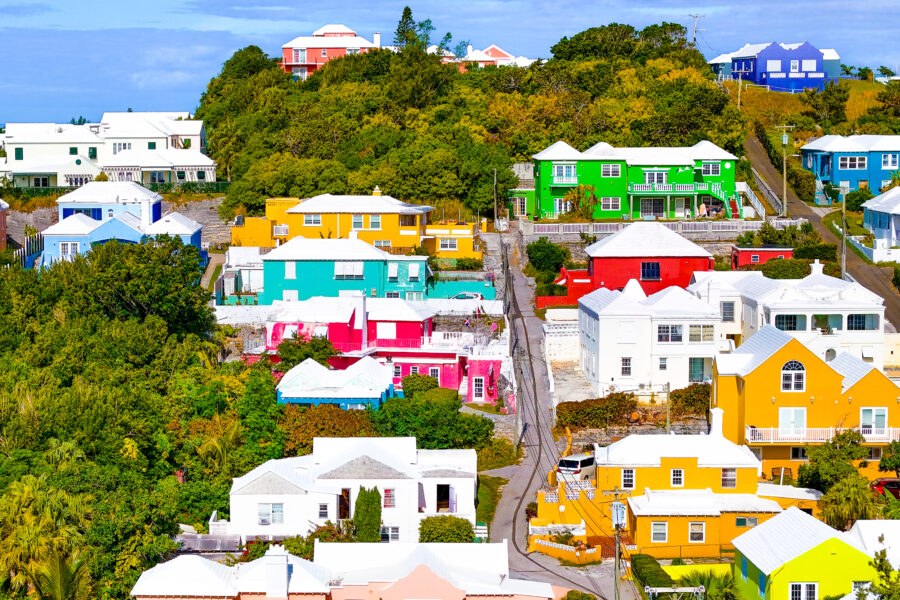
Bermuda enjoys a mild subtropical climate with temperatures rarely exceeding 85°F even in summer. The island’s peak season runs from May to October, with August being the warmest month. Winter temperatures hover around 65-70°F during the day, making it pleasant but not ideal for swimming.
The Bahamas boasts a warmer tropical climate year-round, with temperatures between 70-90°F. You can comfortably visit the Bahamas any month of the year for beach activities. Hurricane season (June to November) affects both destinations, but the Bahamas faces a higher risk of tropical storms.
Bermuda receives more rainfall than the Bahamas, particularly in October. This precipitation contributes to Bermuda’s lush, green landscapes but might interrupt beach plans during brief afternoon showers.
Accommodation Options
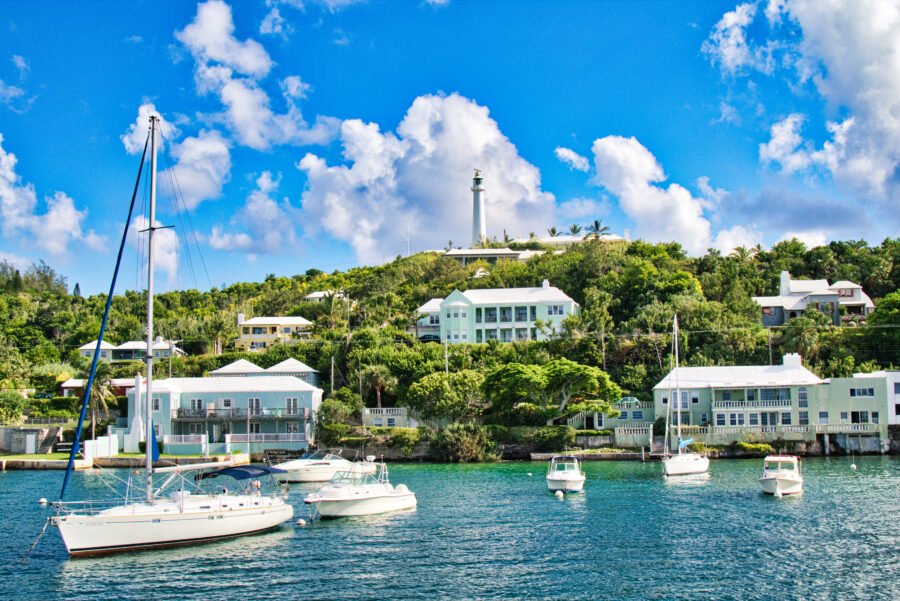
Bermuda features upscale, boutique hotels and accommodations with distinctive British colonial architecture. Most properties offer exceptional service but come with premium price tags, often starting at $300-400 per night in peak season.
The Bahamas provides more variety in lodging options. Budget travelers can find affordable guesthouses on less-visited islands, while luxury seekers can indulge in exclusive resorts on Nassau or Paradise Island.
All-inclusive resorts are more common in the Bahamas, particularly in Nassau and Freeport. Bermuda typically offers European-plan hotels where meals are purchased separately.
Vacation rentals exist in both destinations, but are more prevalent in the Bahamas due to its larger size and varied islands. Bermuda’s limited accommodation inventory often leads to higher occupancy rates, making reservations essential.
Culinary Experiences
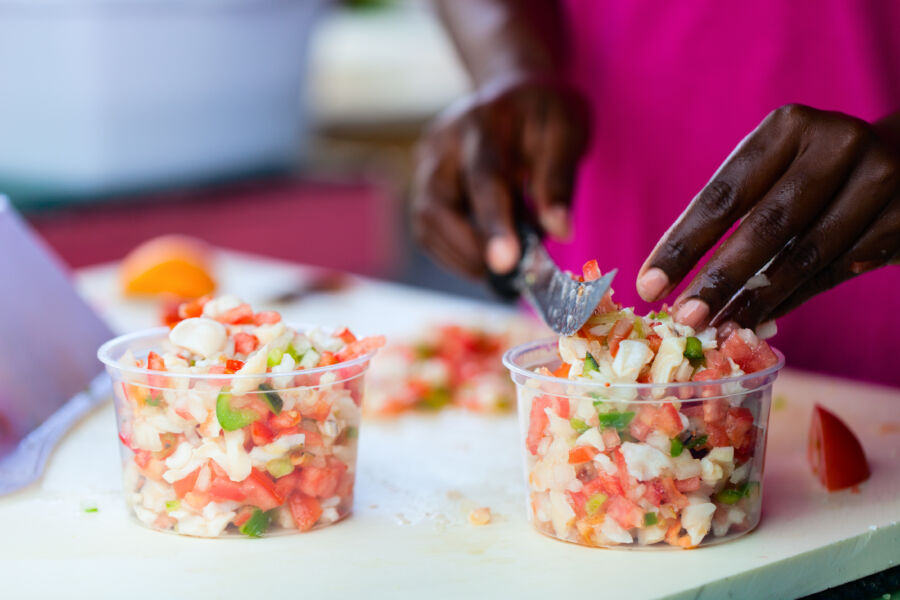
Bermuda’s cuisine reflects its British heritage with unique island twists. Don’t miss fish chowder spiced with Black Rum and Sherry Peppers, traditional codfish breakfast, or fresh rockfish. Restaurants tend to be upscale with sophisticated ambiance and higher prices.
The Bahamas offers more diverse dining options across price points. Conch fritters, cracked conch, and rock lobster are Bahamian staples. Casual beach shacks serving fresh seafood provide authentic local experiences at reasonable prices.
Both destinations incorporate seafood heavily into their cuisines. Bermuda emphasizes proper afternoon tea service, reflecting its British influence.
Street food is more prevalent in the Bahamas, particularly at local fish fries like Arawak Cay in Nassau. Bermuda’s dining scene is more formal with fewer casual options.
Outdoor Excursions
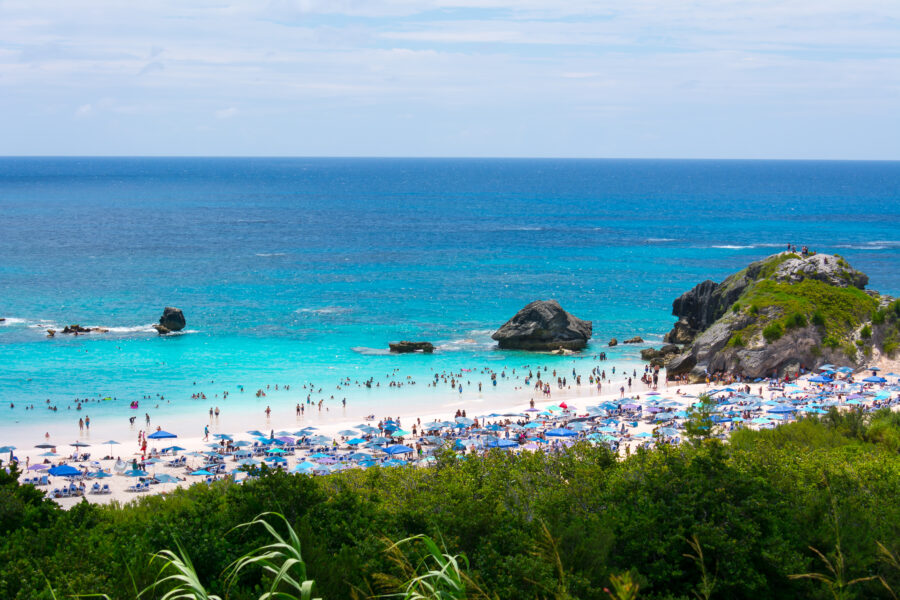
Bermuda packs impressive outdoor diversity into its 21 square miles. The island boasts pink sand beaches like Horseshoe Bay and Elbow Beach. Crystal Cave offers spectacular underground formations, while the Railway Trail provides scenic hiking through lush landscapes.
The Bahamas excels in water activities with its crystal clear waters. Exuma’s swimming pigs, Dean’s Blue Hole (the world’s deepest saltwater blue hole), and extensive coral reefs provide unique adventures. Island-hopping is more feasible in the Bahamas given its archipelago nature.
Bermuda offers better infrastructure for cycling and walking trails. Golf enthusiasts will appreciate Bermuda’s world-class courses with ocean views. Both destinations provide excellent snorkeling, but the Bahamas offers more diverse dive sites.
Nature lovers might prefer Bermuda’s Spittal Pond Nature Reserve for birdwatching. Adventure seekers will enjoy The Bahamas’ opportunities for deep-sea fishing and sailing between islands.
Local Events and Festivals
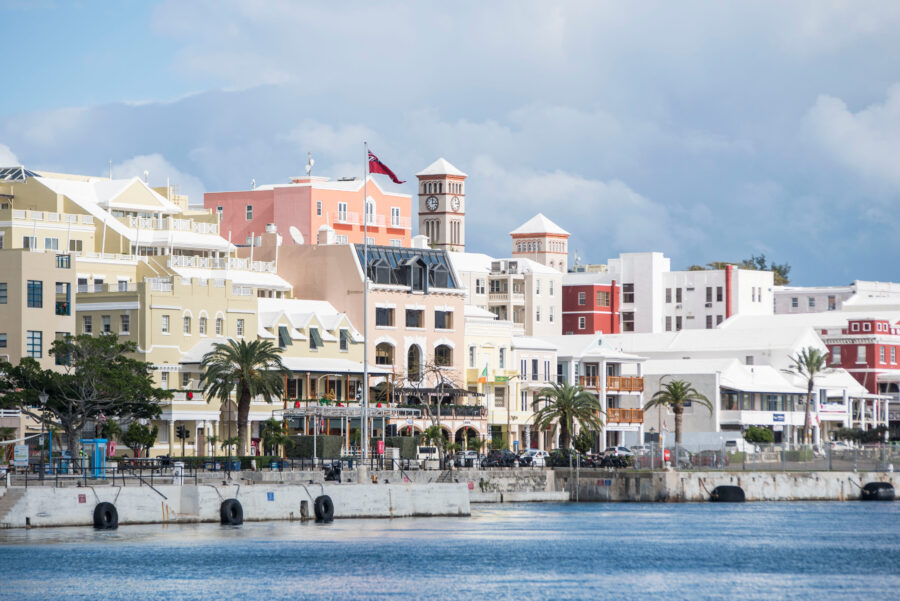
Bermuda celebrates its heritage through colorful festivals year-round. Cup Match (late July/early August) combines cricket competition with cultural celebrations and is the island’s biggest holiday. Bermuda Day (May 24) features parades and beach picnics marking summer’s unofficial start.
During Christmas and New Year’s, the Bahamas’ Junkanoo parades showcase vibrant costumes, rhythmic music, and energetic dancing. Each Bahamian island hosts unique celebrations reflecting local culture, like Cat Island’s Rake and Scrape Festival.
Both destinations celebrate maritime heritage. Bermuda’s Newport Bermuda Race attracts sailors globally, while regatta competitions throughout the Bahamas showcase traditional sloop sailing.
Food festivals offer travelers cultural immersion opportunities. Bermuda Restaurant Weeks (January-February) highlights local cuisine at special prices. The Bahamas’ Pineapple Festival on Eleuthera celebrates the island’s agricultural heritage with fresh local produce and culinary delights.
See Related: Virgin Islands vs Bahamas: Stunning Differences to Know Before Your Caribbean Escape
Travelling to Bermuda and The Bahamas
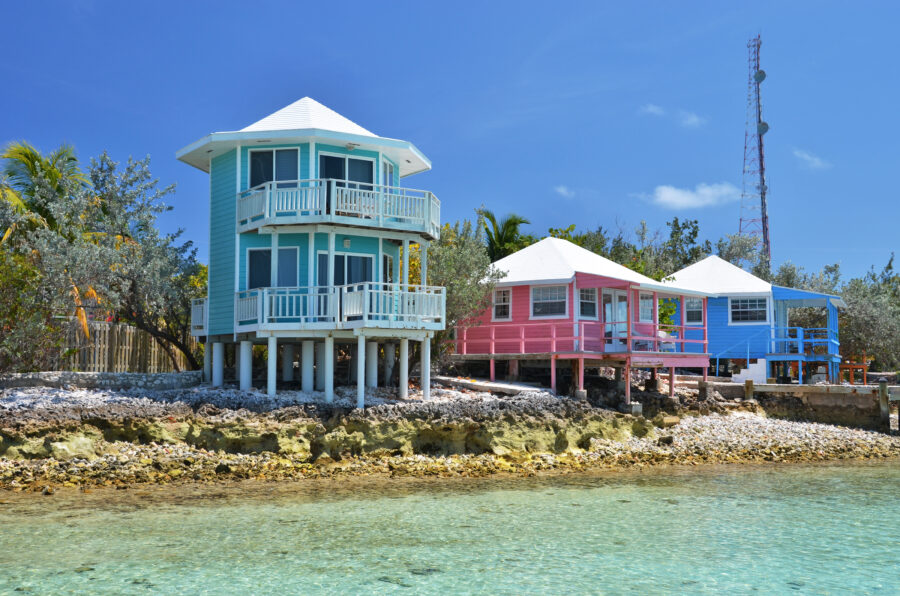
When planning your island getaway, understanding the logistics of getting to and around these destinations can make or break your trip. Bermuda and the Bahamas offer distinct travel experiences with different flight options, transportation systems, and entry procedures.
Flights and Accessibility

Bermuda has one international airport, L.F. Wade International Airport, which receives direct flights from the US East Coast, Canada, and the UK. The flight time from New York is about 2 hours, making it a quick escape. Most major carriers, like American Airlines, Delta, and JetBlue, offer regular service to Bermuda.
With its multiple islands, the Bahamas has two major international airports: Lynden Pindling International in Nassau and Grand Bahama International in Freeport. Nassau is the main gateway, with connections from numerous US cities, Canada, and Europe. You’ll find more flight options to the Bahamas than to Bermuda.
Local airlines like Bahamasair offer frequent connections for island hopping in the Bahamas. This gives the Bahamas an edge if you want to explore multiple destinations in one trip.
Local Transportation
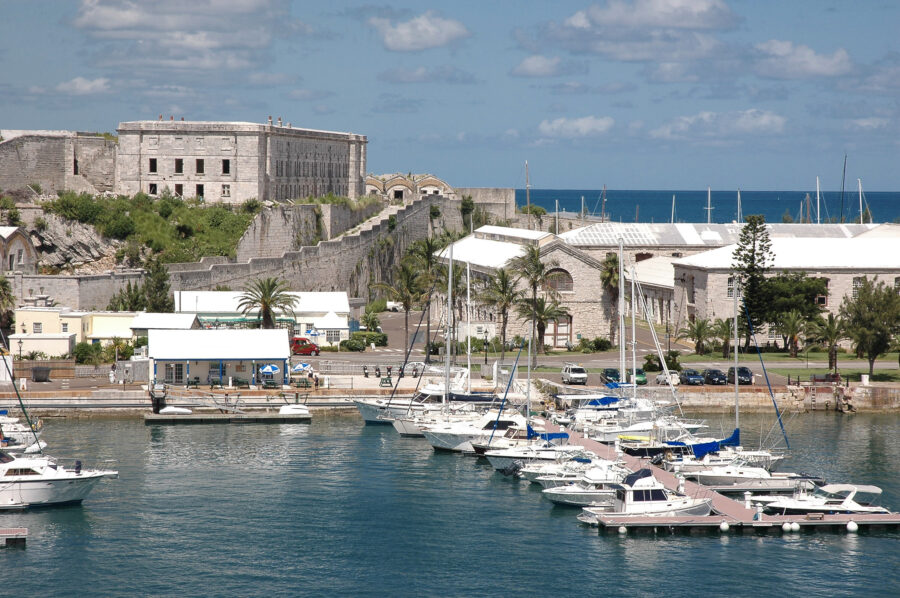
In Bermuda, tourists cannot access rental cars, which surprises many first-time visitors. Instead, visitors get around via scooters, taxis, ferries, and the efficient public bus system. Scooter rentals are popular but require confidence driving on the left side.
The Bahamas offers more transportation options. You’ll find rental cars, taxis, and public buses (jitneys) in Nassau and Freeport. Taxis don’t use meters, so agree on fares before starting your journey.
Island hopping in the Bahamas requires water taxis or small aircraft. The larger islands have decent road networks, while the smaller out-islands have limited transportation. Some resorts offer shuttle services to popular attractions.
Both destinations have ferry services connecting different areas – Bermuda’s reliable ferry system links Hamilton to various points, while the Bahamas ferries connect Nassau to nearby islands.
Entry Requirements
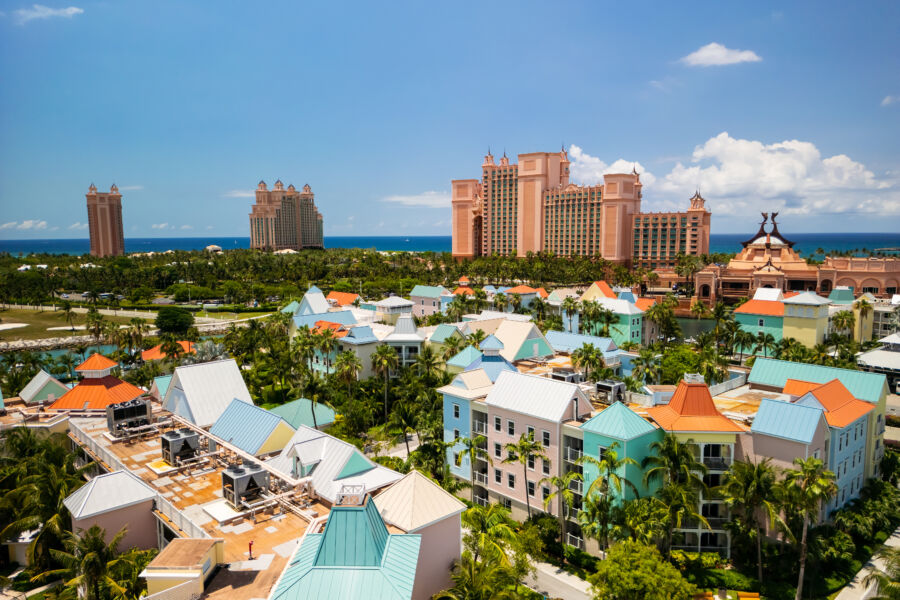
US and Canadian visitors need valid passports for Bermuda travel, but no visa for stays under 90 days. Bermuda also requires proof of return/onward travel and sometimes accommodation details. Recently, they introduced a $40 Travel Authorization fee that must be completed online before arrival.
The Bahamas has similar passport requirements but no travel authorization fee for short visits. US citizens can use passport cards for sea travel, but need full passports for air travel. Both destinations require passports valid for at least six months beyond your stay.
Cruise passengers typically need only their ship ID and passport for day visits to either destination. Customs in both places are straightforward, though the Bahamas tends to be less formal in its entry procedures.
Neither destination has extensive health requirements, but travel insurance is highly recommended for both. The process is generally straightforward, but having all documents ready will ensure smooth entry.
Caribbean Context
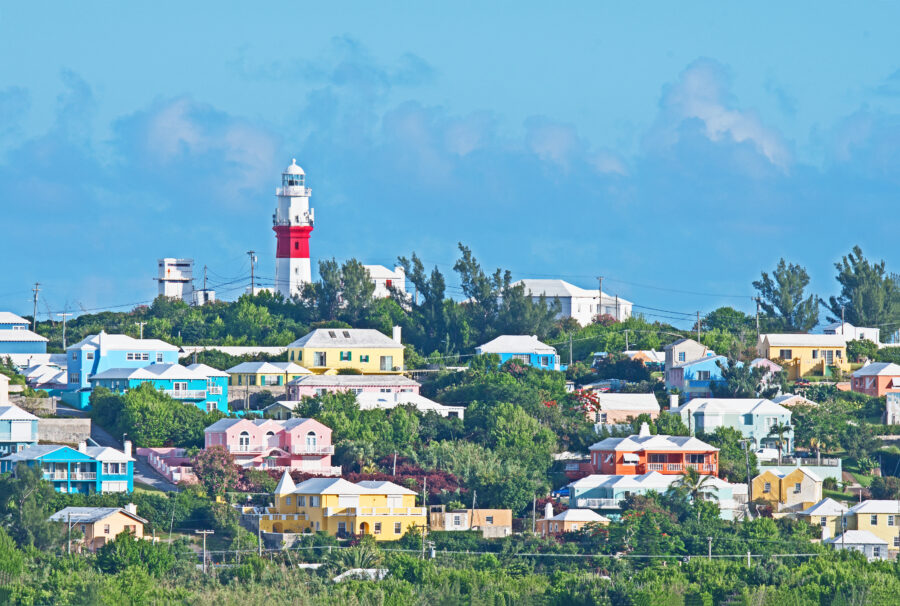
While Bermuda and the Bahamas are often mistakenly grouped, understanding how they fit into the broader Caribbean landscape helps travelers make better vacation choices. Both destinations have distinctive characteristics that set them apart from other Caribbean hotspots.
Comparison with Other Caribbean Destinations
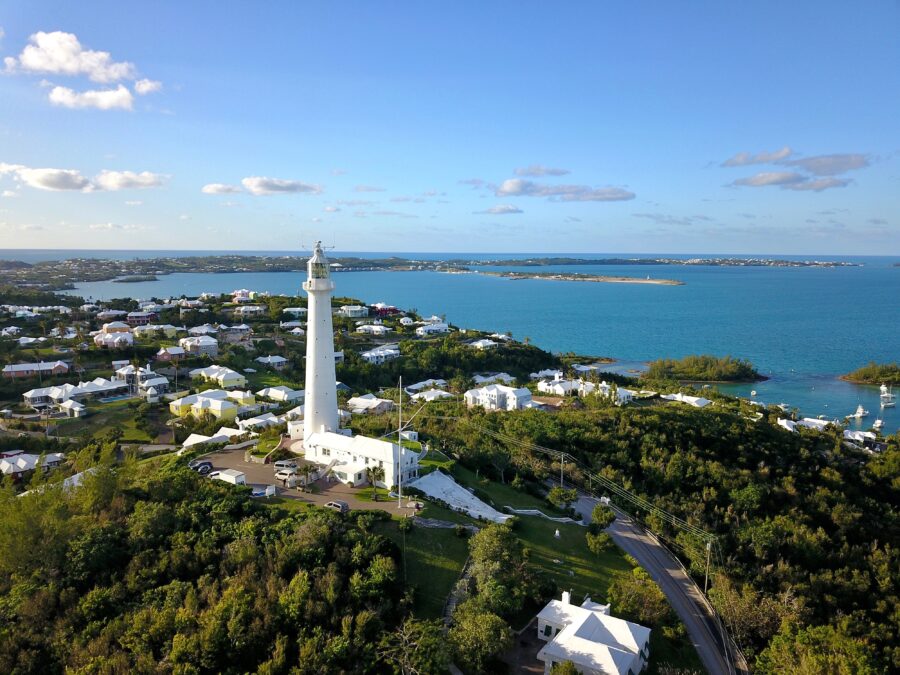
Bermuda stands out from typical Caribbean destinations like Jamaica and Barbados because it’s not technically in the Caribbean—it’s in the North Atlantic. This gives Bermuda a unique seasonal pattern with a shorter high season than places like Aruba or the Cayman Islands.
The Bahamas shares more similarities with other Caribbean destinations, but has its flavor. Its proximity to Florida makes it more accessible than Antigua or Cuba for American travelers.
Water clarity is another key difference. The Bahamas boasts some of the most transparent waters in the region, rivaling even the famous blue waters of Aruba. Due to different ocean floor compositions, Jamaica and Barbados typically have darker blue waters.
Architecture also varies significantly. Bermuda’s pastel-colored buildings with white roofs create a distinct look compared to the colonial Spanish influence seen in Cuba or the colorful buildings of Barbados.
Economic Impact of Tourism
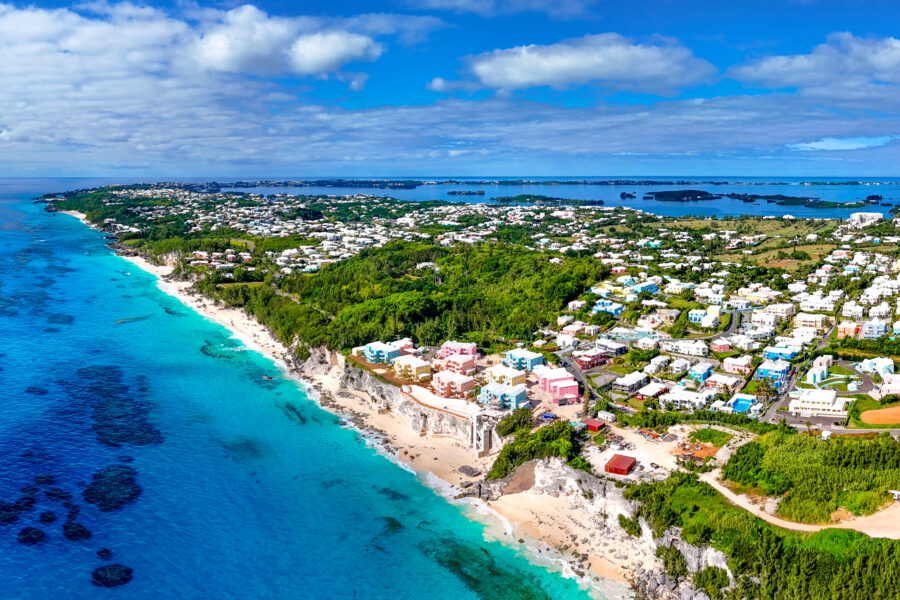
Tourism drives the economies of both Bermuda and the Bahamas, but in different ways from other Caribbean nations. The Bahamas relies on tourism for about 50% of its GDP and employs about half the workforce in tourism-related jobs—a higher percentage than Jamaica or Barbados.
Cruise tourism impacts these destinations differently. The Bahamas receives over 5 million cruise visitors annually, primarily at Nassau and private islands. This is significantly more than Bermuda’s cruise traffic.
Luxury tourism plays a bigger role in Bermuda’s economy than most Caribbean destinations, except perhaps the Cayman Islands. The average visitor to Bermuda spends more daily than visitors to Cuba, Jamaica, or the Bahamas.
Both destinations face economic challenges from seasonal tourism patterns. Unlike Aruba, which has consistent year-round tourism, Bermuda experiences significant seasonal fluctuations that affect employment patterns.
See Related: Best Vacation Destinations for Singles Over 40
Sports and Recreation
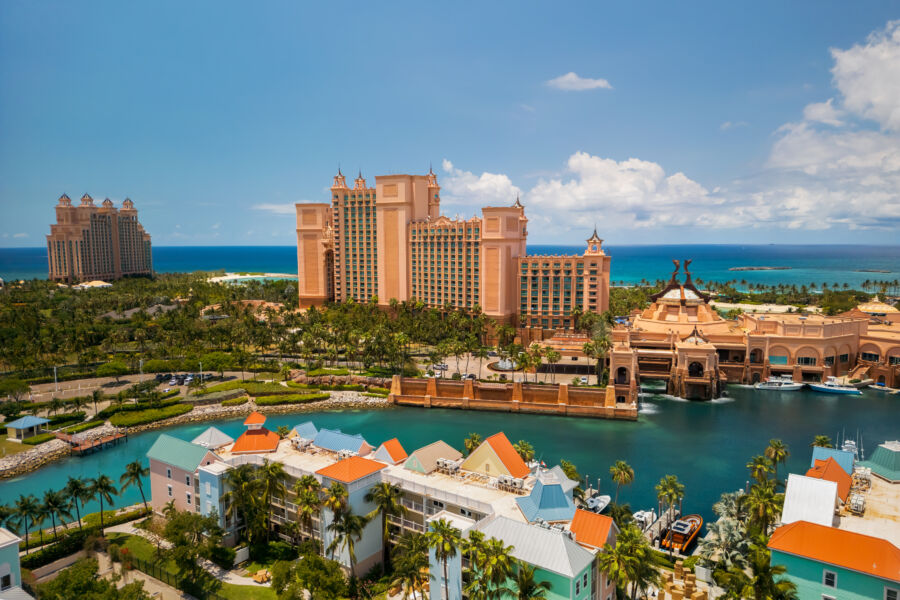
Both Bermuda and the Bahamas offer amazing sports and recreational activities for travelers. These island destinations have developed unique offerings that take advantage of their natural environments, from crystal clear waters to lush landscapes.
Bermuda and the Bahamas in Sports
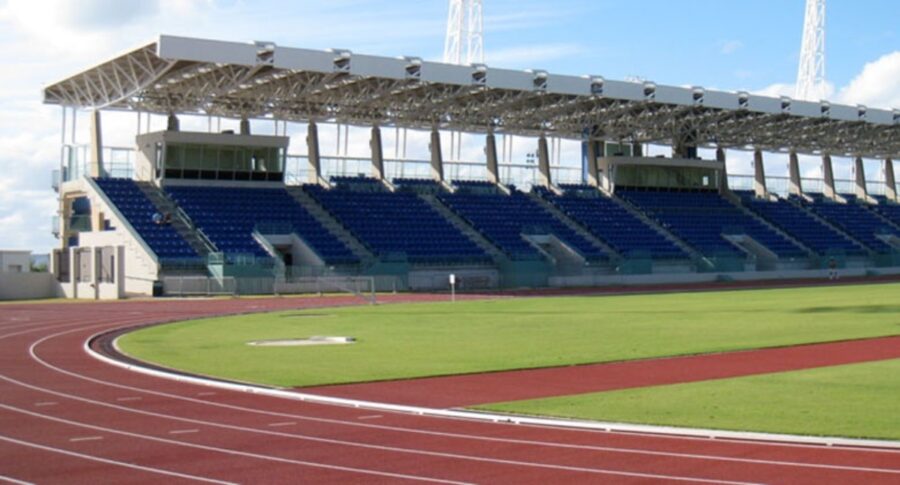
Bermuda has a strong sporting culture centered around cricket, sailing, and rugby. Cricket is a national obsession, and visitors can catch exciting matches at the National Sports Centre. During the summer months, Cup Match is a huge cricket tournament that doubles as a cultural festival.
With its larger population, the Bahamas offers more variety in sporting events. The Thomas A. Robinson National Stadium in Nassau hosts international track and field competitions. The Bahamas is particularly known for its sprinters who have won Olympic medals.
Both destinations host sailing regattas that attract international competitors. The Bermuda Gold Cup is part of the World Match Racing Tour, while the Bahamas hosts several major regattas throughout the year in its crystal-clear waters.
Marine Activities
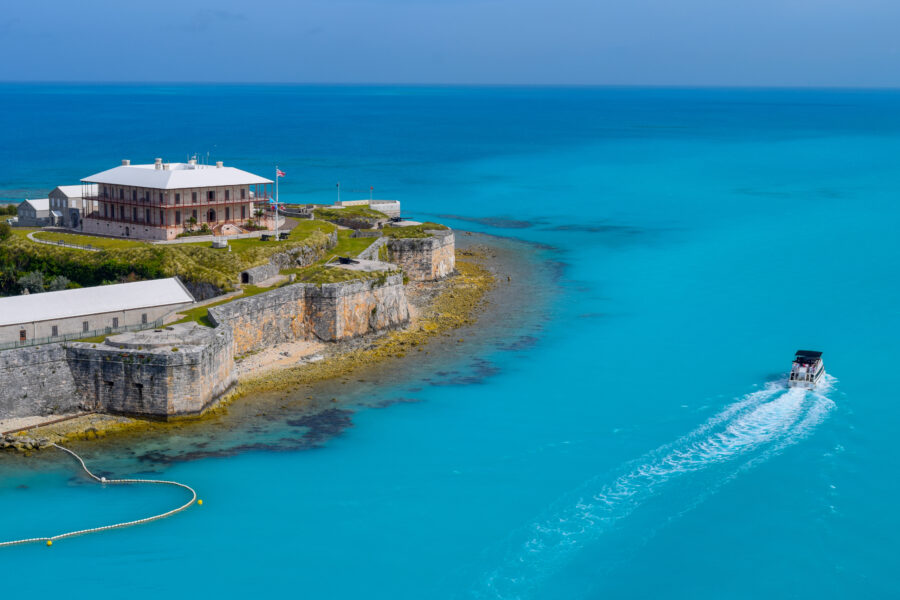
Water sports dominate recreational activities in both destinations. The Bahamas offers more diverse marine adventures with its 700+ islands and extensive reef systems. Snorkeling and diving experiences range from beginner-friendly shallow reefs to advanced blue holes and wall dives.
Bermuda’s waters are famous for shipwreck diving. Over 300 shipwrecks surround the island, creating fascinating underwater museums for divers. The crystal visibility often exceeds 100 feet, making it ideal for underwater photography.
Both destinations excel in fishing opportunities. The Bahamas is known for bonefishing in its shallow flats, while Bermuda offers exceptional deep-sea fishing for marlin and tuna. Kayaking, paddleboarding, and jet skiing are widely available at beaches in both locations.
Golfing Destinations
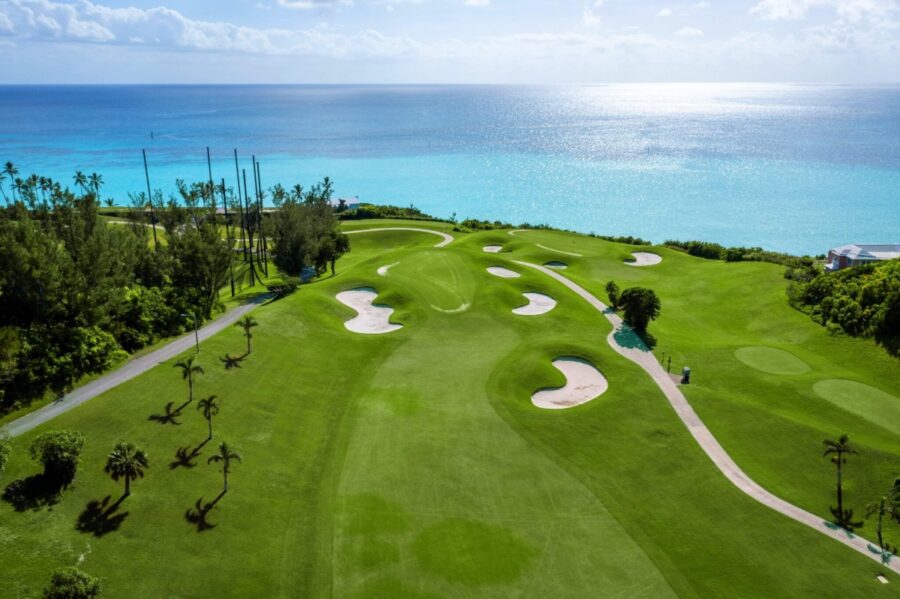
Bermuda is a superior golfing destination with eight world-class courses packed into its 21 square miles. Port Royal Golf Course, designed by Robert Trent Jones, has hosted PGA Grand Slam events. The stunning ocean views from nearly every hole make golfing in Bermuda an unforgettable experience.
The Bahamas offers fewer but still impressive golf courses. Tom Weiskopf designed the Ocean Club Golf Course on Paradise Island and has hosted LPGA events. Albany, a luxury resort community, features an Ernie Els-designed championship course.
Both destinations benefit from year-round golfing weather, though Bermuda’s season peaks from April to November. The Bahamas maintains consistent playing conditions throughout the year. Green fees tend to be higher in both locations compared to mainland courses, reflecting their resort destination status.
Planning Your Trip

Deciding between Bermuda and the Bahamas takes some careful planning. Both destinations offer unique experiences but differ in key aspects that might influence when you visit, how much you budget, and what activities you include in your itinerary.
Best Time to Visit
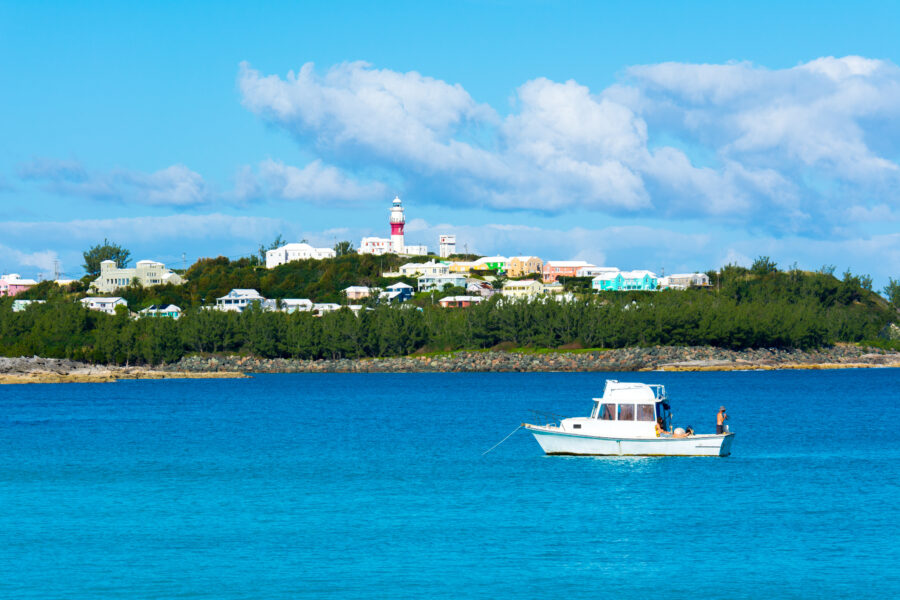
Bermuda’s peak season is from May to October, when temperatures range from 75°F to 85°F. The water is warm enough for swimming, and you can enjoy all outdoor activities without worry. The Bahamas has a longer favorable weather window, making it a year-round destination.
Unlike Bermuda, the Bahamas maintains tropical temperatures throughout the year. This gives travelers more flexibility when planning a trip.
Hurricane season affects both destinations from June to November, but the Bahamas faces a higher risk. If you’re concerned about weather disruptions, Bermuda is typically safer from September to October.
Winter travelers should note that Bermuda gets cooler (60°F-70°F) from December to March, making beach activities less appealing. The Bahamas stays pleasantly warm even in the winter months.
Budgeting for Your Vacation
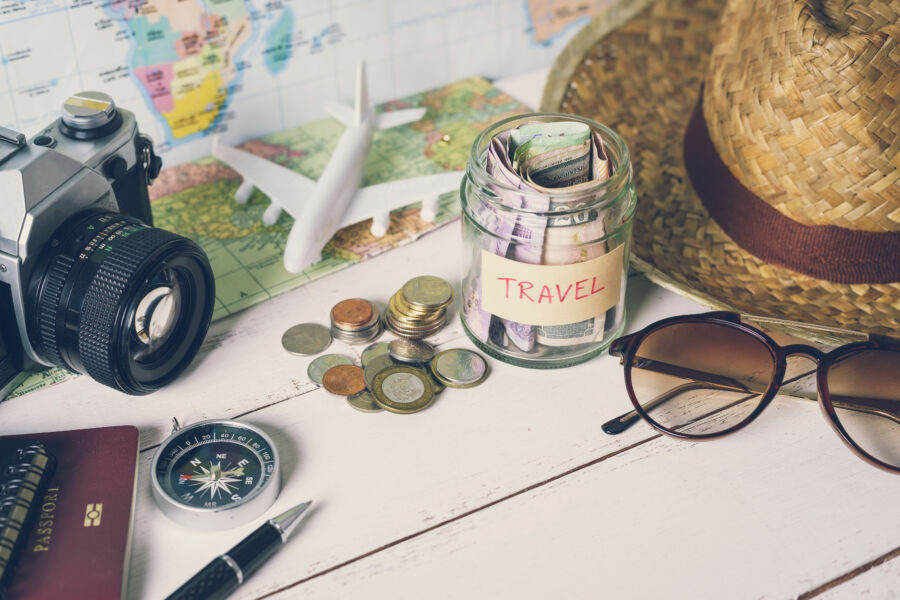
Bermuda tends to be more expensive than the Bahamas across all travel categories. Hotels in Bermuda average $300-500 per night, while comparable accommodations in the Bahamas might run $200-400.
Food costs also differ significantly:
| Expense | Bermuda | The Bahamas |
|---|---|---|
| Average meal | $30-50 | $20-40 |
| Beach drink | $12-15 | $8-12 |
| Transportation (daily) | $40-60 | $25-45 |
The Bahamas offers more all-inclusive resort options, which can help control costs. These packages typically include meals, drinks, and some activities.
Consider saving by traveling during shoulder seasons (April-May or September-October) when prices drop but weather remains favorable. This strategy works particularly well for Bermuda.
Travel Insurance and Safety
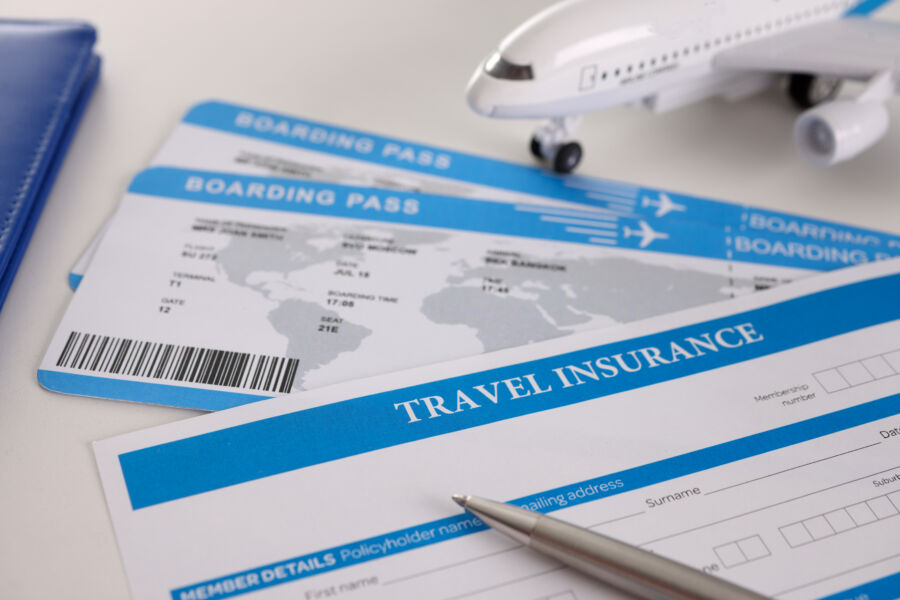
Travel insurance is essential for both destinations, but for different reasons. Bermuda’s remoteness means medical evacuations are extremely expensive if you face a serious health issue.
The Bahamas has more comprehensive medical facilities on major islands, but smaller islands have limited healthcare options. Look for policies that include:
- Medical coverage of at least $100,000
- Trip cancellation protection
- Hurricane coverage (especially during storm season)
- Baggage loss protection
Both destinations are relatively safe for tourists. Bermuda has lower crime rates overall, but the Bahamas’ tourist areas maintain good security. Avoid isolated areas at night and use the same precautions in any destination.
Creating an Itinerary
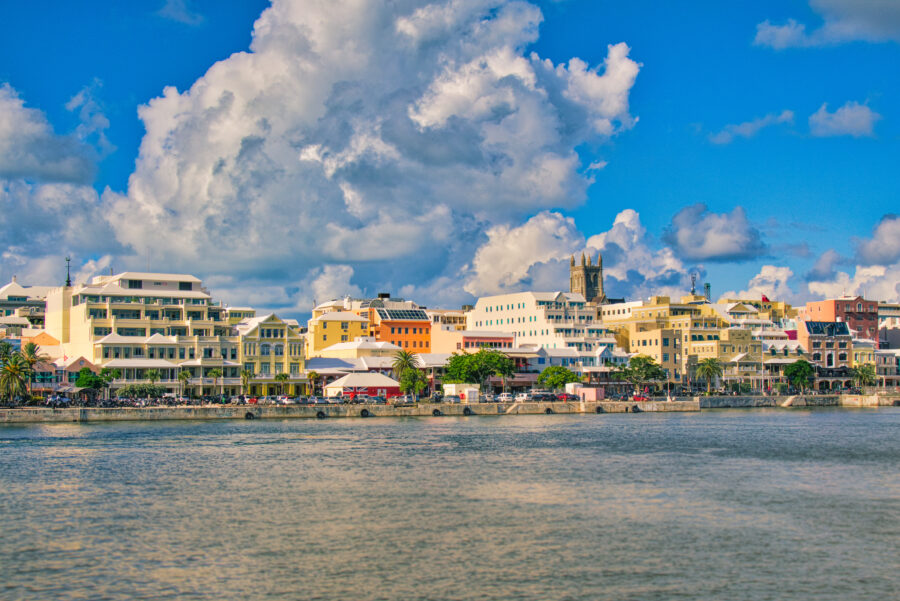
Bermuda is smaller and more condensed, making it possible to see major highlights in 4-5 days. The Bahamas consists of over 700 islands, requiring more strategic planning.
For Bermuda, include these must-see attractions:
- Horseshoe Bay’s pink sand beaches
- Historic St. George’s Town
- Crystal Cave explorations
- Hamilton’s shopping and dining
Choosing which islands to visit in the Bahamas is challenging. Nassau and Paradise Island offer tours and excursions with plenty of activities, while Exuma and Eleuthera provide more secluded experiences.
Water activities dominate both destinations. Bermuda offers world-class wreck diving and snorkeling in calmer waters, while the Bahamas features the famous swimming pigs, shark encounters, and diverse marine experiences.
Allow buffer days in your itinerary during hurricane season, as weather can disrupt transportation between islands in the Bahamas or flights to Bermuda.
See Related: Bahamas vs Jamaica: Key Differences to Know Before Booking Your Caribbean Getaway
Frequently Asked Questions
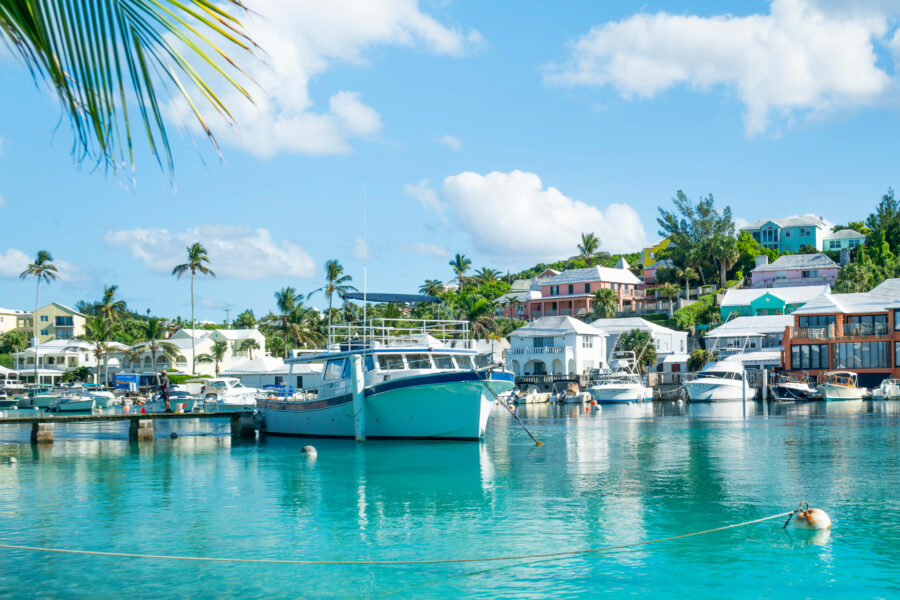
Choosing between Bermuda and the Bahamas involves considering several key factors, including climate, culture, cost, and activities available at each destination. These common questions can help travelers best meet their vacation needs.
What are the primary differences in climate between Bermuda and the Bahamas throughout the year?
Bermuda has a more moderate climate than the Bahamas. It experiences cooler winters, with temperatures ranging from 65-70°F (18-21°C) between November and March, making it less ideal for beach activities during these months.
The Bahamas maintains warm temperatures year-round, rarely dropping below 70°F (21°C) even in winter. This makes the Bahamas a better choice for winter beach vacations.
Hurricane season affects both destinations from June to November, but the Bahamas typically experiences more storm activity than Bermuda.
How do Bermuda’s cultural and historical attractions compare with those in the Bahamas?
Bermuda offers a unique blend of British and African heritage. The island features colonial architecture, historic forts like Fort St. Catherine, and museums that showcase its maritime history and role in the Atlantic trade.
The Bahamas has a vibrant Caribbean cultural scene with strong African influences. Visitors can explore pirate history and colonial sites and enjoy cultural festivals like Junkanoo, which showcase local music, dance, and art.
Both destinations have preserved their historical sites well, but Bermuda emphasizes its British colonial past more prominently in its attractions and architecture.
What are the considerations for choosing between a cruise to Bermuda and the Bahamas?
Cruises to Bermuda typically offer longer stays at port, often docking for 2-3 days at a time. This allows travelers to explore the island more thoroughly without returning to the ship each evening.
Bahamas cruises usually include multiple stops at different islands, providing variety but less time at each location. Many cruise lines also visit private islands in the Bahamas, offering exclusive beach experiences.
The sailing season differs significantly—Bermuda cruises generally run from April to November, while Bahamas cruises operate year-round thanks to the warm weather.
Which destination is recommended for travelers seeking a more affordable tropical vacation?
The Bahamas offers more budget-friendly options, especially in areas like Nassau, where accommodations range from hostels to all-inclusive resorts. Food costs can be managed by choosing local eateries over tourist restaurants.
Bermuda is consistently more expensive for lodging, dining, and activities. The island has fewer budget accommodation options, and even basic meals tend to cost more than in the Bahamas.
Transportation costs differ, too. The Bahamas has more flight options from major cities, potentially making airfare cheaper, especially during sales and off-peak times.
Can visitors expect a significant difference in safety when deciding whether to travel to Bermuda or the Bahamas?
Bermuda has one of the lowest crime rates in the world. Tourists rarely experience safety issues beyond the occasional petty theft, making it an exceptionally safe destination for all travelers.
The Bahamas has higher crime rates, particularly in Nassau and Freeport. In certain areas, tourists should exercise caution, especially at night. However, resort areas maintain good security standards.
Both destinations have excellent healthcare facilities, though medical care in Bermuda tends to be more expensive. Travel insurance is recommended for visits to either location.
Which island provides a wider variety of sporting events and activities, Bermuda or the Bahamas?
Bermuda excels in water sports like sailing, deep-sea fishing, and diving among shipwrecks. The island is famous for its world-class golf courses and the annual Bermuda Race Week sailing competition.
Meanwhile, the Bahamas offers more diverse adventure options with activities spread across its many islands. Visitors can enjoy swimming with pigs at Exuma, diving the blue holes of Andros, or sport fishing in Bimini.
The Bahamas provides families with more organized resort activities and water parks, particularly at destinations like Atlantis on Paradise Island. Meanwhile, Bermuda tends to focus more on natural attractions and historic sites.

